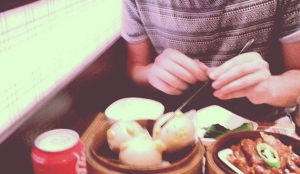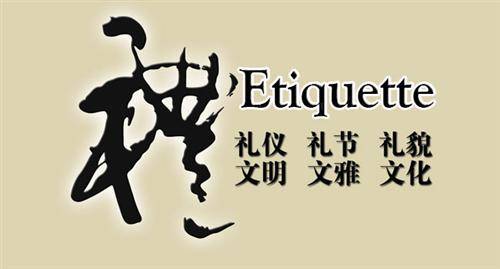By Sheree Hooker, teacher in Wuhan in 2013-2014
Accepting a placement at a school in Wuhan was perhaps the biggest and most scary decision I have made to date. I had done my research, spoke to others who had been in my situation and I still felt woefully unprepared for what was awaiting me when I got off the plane. This is not to discredit any of the sources I cited or any of the helpful people that offered me advice. In these kinds of situations it doesn’t matter how much you try to prepare, your expectations never quite align with reality.
The flight to Wuhan took around eighteen hours and I remember the journey feeling long and short all at the same time. It was my first experience flying on my own, my first visit to China and my first ever teaching job. I remember being so nervous on the flight that I couldn’t even commit to watching a film to pass the time; my mind wouldn’t stop whirring. It wasn’t the fear of being in front of a class of students that bothered me the most, or even the thought of being thousands of miles from home. The thing that really frightened me was how I was going to fit in. How should I act? What should I do to avoid awkward confrontations? And most of all, how do I avoid offending people?
The first thing to consider if you share these same anxieties is to accept that you will make mistakes. You will say something tactless, you will take offence when you shouldn’t and you will at times forget where you are. This is not the easiest thing to come to terms with but come to terms with it you must. You are only human. The plus side to these awkward faux pas is that you are probably experimenting in one of the best places in the world. Generally, Chinese people greatly enjoy meeting foreigners and are hugely keen to engage you in conversation, even if this just means shouting “HELLO!” very loudly at you from down the street. (Believe me, it will happen.) The Chinese don’t expect you to get everything right and are on hand to help when you don’t.
Greetings
The first thing you need to consider is how you should greet people. Naturally, it takes a while to get to grips with the language but you should at least try to nail hello, thank you and goodbye within your first week. This isn’t like Europe; a lot of people might speak no English at all, leaving you with no choice but to learn some Chinese. Many people believe that the appropriate way to greet a Chinese person is by bowing, but this is regarded as an archaic formality that is no longer observed. The normal way of greeting people in an informal setting is to simply say “nĭ hăo” with a smile. In a more formal situation, for example meeting a student’s parents, it is acceptable to shake hands as you say hello, much like you probably would in your own culture. If you were being introduced to a room full of Chinese people whom you were expected to greet separately, you would head over the oldest person first as a sign of respect.
Conversation
After greeting your peers the next thing to consider is the conversation. Whether you have mastered the basics in Chinese or you are communicating via translator, it helps to be prepared for the types of questions that people could ask you. Much conversation in western culture is occupied by small talk, such as: the weather, the news and holidays to name a few. Generally, it is seen as obtrusive to ask personal questions. However, this is very different in Chinese culture. It is not uncommon to be asked your age, whether you are married and how much you earn. The best way to deal with these topics is to remember that no offence is meant by asking, people are just curious when it comes to foreigners. Feel free to answer any questions providing you feel happy. If the topic is something that makes you uncomfortable, by all means say it is something you’d rather not discuss. Whilst it is important to be accepting of Chinese culture, you are still entitled to a private life!
On a similar theme, it is important to take some comments with a pinch of salt. It is not unusual for the Chinese to make observations that we perceive as very rude. It is likely you will see this if you teach young children. During my time in China, I recall seeing a child call a colleague fat in front of them and being horrified. The correct way to deal with this situation is to avoid getting angry and calmly explain that saying things like that could upset people.
Although the Chinese can be quite tactless during conversation, they are also very willing to give compliments. Do not be surprised if people praise how good your Chinese is after you’ve only said nĭ hăo. Whilst as westerners we are accustomed to replying with thank you, in Chinese culture it is important to appear humble. A more appropriate retort would be, “I still have lots to learn”.
Unlike in western culture, one topic that you should generally avoid bringing up in conversation is politics. The Chinese are particularly patriotic and topics concerning previous leaders, Tibet, Japanese relations and recent history should be avoided. I once found myself in an awkward situation where a Chinese person was trying to force a political discussion. I thought it easiest to plead ignorance and encourage them to move on.
Eating Out
When you’ve succeeded in fine tuning your conversational etiquette, it is likely that your new Chinese friends will want to invite you for dinner. Meal times are often treated as a social affair with large families getting together to eat. If you are invited round to someone’s house, it is important that you remember to remove your shoes before entering. This shows respect for the other person’s space. It is a nice gesture to bring a small gift for your host but avoid clocks or things connected to the number four as they symbolise death. Shoes are also a bad idea because they signify people going separate ways. If you are offered anything, be sure to receive it with both hands.
When it comes to eating, it is unlikely you will be asked what you would like. If you are in someone’s home, there will usually be a spread laid out where you are expected to sample a small piece of everything. If you are in a restaurant, the host will order the dishes and everyone will be expected to help themselves. Be aware that any water on the table will be hot and that if you wish to drink cold beer you will have to specify this when ordering.
When you are using chopsticks, never leave them standing upright in your bowl as this is considered impolite. Another point of note is that burping is an acceptable practice during dinner service and in fact shows an appreciation of the food. At the end of the meal it is very unlikely that the bill will be split as in Chinese culture, it is customary for one person to pay. This is usually the host but this isn’t always the case. Prior to money exchanging hands, a ritual takes place where the guests will argue about who is going to pay. From what I saw whilst dining out, Chinese women rarely offer, instead leaving the debating to their husbands. It seems unlikely that a Chinese person would allow a westerner to pay for dinner but a polite offer is always appreciated.

Drinking Culture
China may not be plagued by the stereotypical drinking culture that characterises the west but there is still a large binge drinking trend within the country. The choice of tipple in China is usually rice wine but don’t be fooled by the name. This is an industrial strength spirit, consumed straight and has been the undoing of more than a few foreigners! If you are out drinking with the Chinese, they will expect you to keep up and will take it upon themselves to refill your glass at any available opportunity. Before drinking, you should always toast your host to be polite. If at any point someone toasts you and exclaims, “Gānbēi!” you should finish your drink in one go.
The Chinese are very proud people and use their wealth to demonstrate that they are good hosts. During a recent trip to Laos, I was sitting on a table outside a wine bar with my other half and a Chinese man sat down next to us. He offered us some wine and as it is polite to accept, we did. The man proceeded to order bottle after bottle of the most expensive wine all night without accepting any money from us. Every time my partner went to smoke the man offered his own cigarettes which according to him were stronger and more expensive. If you find yourself in a similar situation to this but don’t smoke, you should make this clear but still show appreciation for the offer. I had refused such things before and my host appeared to be hurt, continuing to offer until I repeated my thanks numerous times.
It is generally unusual to see Chinese women in bars and those who do frequent such areas suffer stigmatisation from their own communities. There seems to be an assumption that if a Chinese woman spends time in bars she is not wife material, something that is still considered very important in Chinese society today.
Confrontation
Perhaps the most important thing to remember when interacting with Chinese people is not to make them lose face. The Chinese are very proud and do not appreciate humiliated or being called out in a public setting. This is an important thing to remember whilst you are teaching. Instead of correcting a student in front of the class, it is best to offer advice privately and give credit when it is deserved. This sensitive response will have a more desirable effect than an embarrassing shouting match would.
A Final Note…
Please don’t feel daunted by the list of above points. No-one will expect you to remember all of these things immediately and it is far better to get involved and make mistakes than to sit on the sidelines. From my experience, people are very happy to help you providing you put in the effort to engage with their culture. If in doubt, follow the lead of your Chinese peers and don’t be afraid to ask for help. Remember, China can be a scary experience but above all else it is meant to be fun. Don’t forget to enjoy it!
Check out an interview with Sheree’s about her experiences as a teacher in Wuhan here
Sheree Hooker interview


Leave A Comment
You must be logged in to post a comment.